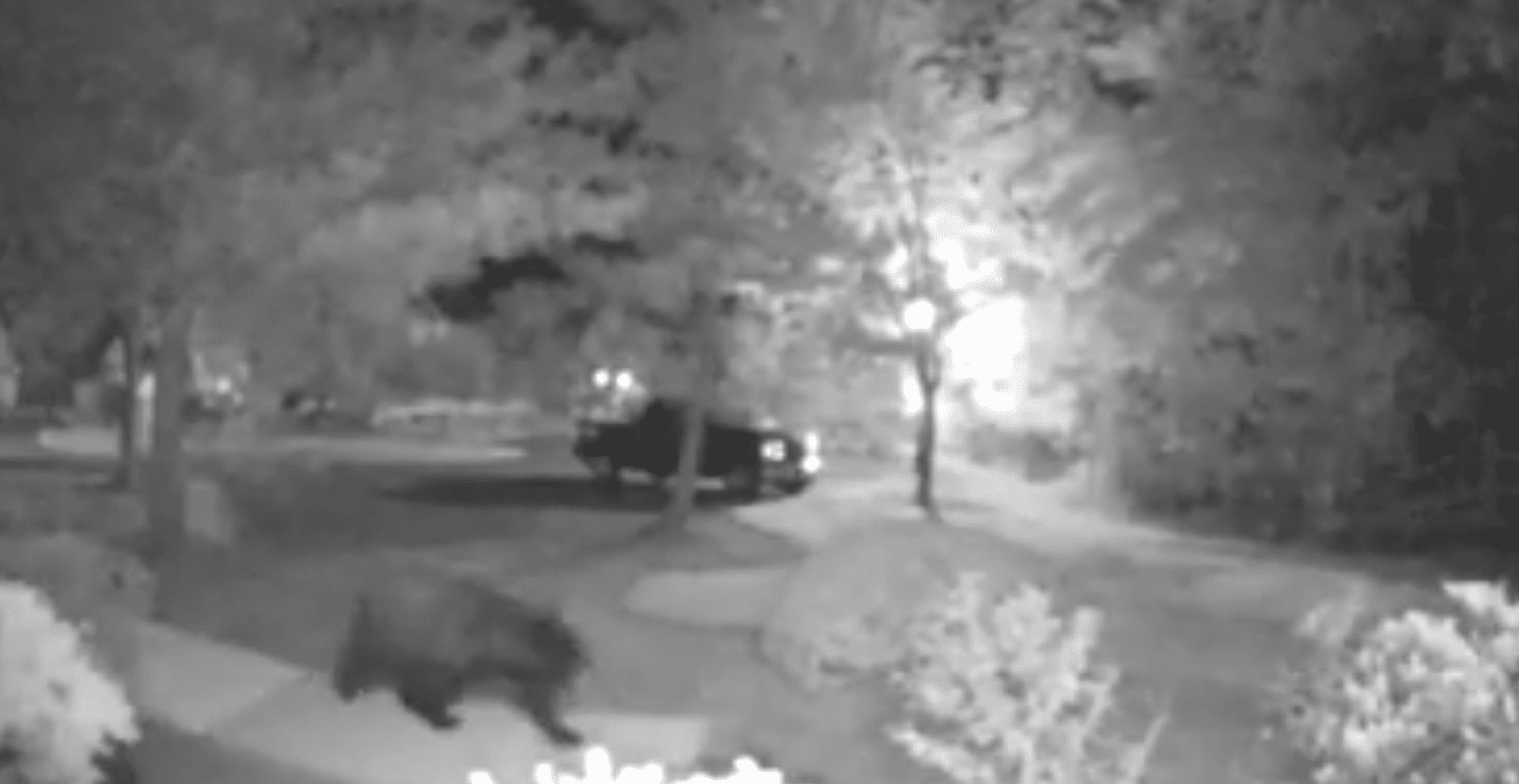Black bears have been sighted in all of New Jersey’s 21 counties, with the most dense population in the northwestern counties of Sussex, Warren, Passaic and Morris. And, just in time for the Department of Environmental Protection’s Division of Fish and Wildlife annual bear safety tips, a bear was caught on home security camera on May 10, 2018 in Hopewell Township / Pennington in in Brandon Farms.
“At this time of year, it is important for residents who live in New Jersey’s bear country to be aware of some steps they can follow to reduce the chances of a bear coming onto their properties,” said Assistant Commissioner for Natural and Historic Resources Ray Bukowski. “It is also a good time for anyone who spends time outdoors to become familiar with ways to stay safe.”
Bears are not true hibernators but enter a state of winter dormancy known as torpor. During torpor they may lose up to 20 percent of their body weight. They need to restore this weight for the mating season, which begins in late May and continues well into summer.
One of their primary natural food sources in spring is skunk cabbage, a leafy plant that grows along edges of rivers, streams and wetlands. Other natural food sources include grasses, forbs, tubers, bulbs and insects. They may also feed on carrion.
Bears have an acute sense of smell and can detect scents over great distances, so great care must be taken to prevent bears from being attracted to other food sources around properties, such as trash, food residue on grills, bird seed and pet food.
“Although bears are by nature wary of people, animals attracted to neighborhoods may learn to associate people with food,” said Division of Fish and Wildlife Director Larry Herrighty. “These animals may become nuisance bears that may cause property damage or seek handouts from people.”
Intentional feeding of a bear is dangerous and illegal and carries a fine of up to $1,000.
The Division of Fish and Wildlife also offers the additional following tips to minimize conflicts with bears this spring:
- Secure your trash and eliminate obvious sources of food, such as pet food on decks, easy-to-reach bird feeders, or food residues left in barbecue grills.
- Use certified bear-resistant garbage containers if possible. Otherwise, store all garbage in containers with tight-fitting lids and place them along the inside walls of your garage, or in the basement, a sturdy shed or other secure area.
- Wash garbage containers frequently with a disinfectant solution to remove odors. Put out garbage on collection day, not the night before.
- Avoid feeding birds when bears are active. If you choose to feed birds, do so during daylight hours only and bring feeders indoors at night. Suspend birdfeeders from a free-hanging wire, making sure they are at least 10 feet off the ground. Clean up spilled seeds and shells daily.
- Immediately remove all uneaten food and food bowls used by pets fed outdoors.
- Clean outdoor grills and utensils to remove food and grease residue. Store grills securely.
- Do not place meat or any sweet foods in compost piles.
- Remove fruit or nuts that fall from trees in your yard.
- Install electric fencing as an effective way to protect crops, beehives and livestock.
If you encounter a black bear in your neighborhood or outdoors while hiking, fishing or camping, follow these safety tips:
- Remain calm. Never run from a bear. Instead, slowly back away. Avoid direct eye contact, which may be perceived by a bear as a challenge. Make sure the bear has an escape route.
- To scare the bear away, make loud noises by yelling, using a whistle, banging pots and pans, or sounding an air horn. Make yourself look as big as possible by waving your arms. If you are with someone else, stand close together with your arms raised above your head.
- Make bears aware of your presence by speaking in an assertive voice, singing, clapping your hands, or making other noises. If hiking through bear country, always make your presence known through loud talking or clapping of hands.
- The bear may utter a series of huffs, make popping sounds by snapping its jaws and swatting the ground. These are warning signs that you are too close. Slowly back away, avoid direct eye contact. Do not run.
- If a bear stands on its hind legs or moves closer, it may be trying to get a better view or detect scents in the air. This is usually not a threatening behavior.
Black bears will sometimes “bluff charge” when cornered, threatened, or attempting to steal food. Stand your ground, avoid direct eye contact, then slowly back away and do not run. - If the bear does not leave, move to a secure area such as a vehicle or a building.
- Families who live in areas frequented by black bears should have a “Bear Plan” in place for children, with an escape route and planned use of whistles and air horns.
Black bear attacks on humans are extremely rare. If a black bear does attack, fight back.
DEP wildlife experts emphasize that a black bear simply passing through an area and not causing a specific problem, such as breaking into trash or otherwise trying to access food sources on people’s properties or posing a safety threat, should be left alone.
People should leave the area and allow the bear to continue on its way. When frightened, bears may seek refuge by climbing trees. If the bear does go up a tree, clear the area and give the bear time to climb down and escape.
Report bear damage, nuisance behavior or aggressive bears to the Wildlife Control Unit of the DEP’s Division of Fish and Wildlife at (908) 735-8793. During evenings and weekends, residents should call the local police department or the DEP Hotline at 877-WARN-DEP (877-927-6337). To learn more about New Jersey’s black bears, visit www.njfishandwildlife.com/bearfacts.htm.




